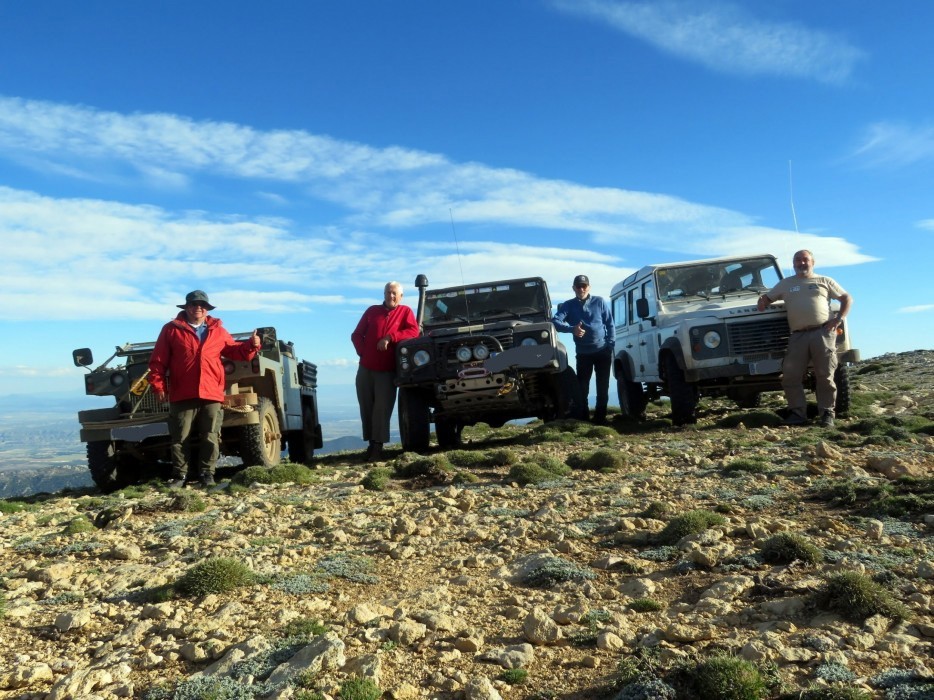
What is Overland?
Overland is an English term that literally means by land, over land. Webster´s Unabridged Dictionary contains two related terms.
The term overland itself, which literally, regarding the meaning we’re interested in, is defined as “… making a journey by way of land, as an overland route.”
A second term – overlander – a concept defined as “in Australia, one who makes an overland journey; specifically, one who drives cattle, etc. over a long distance.”
And then, initially, overland might basically be defined as a journey made by land that covers long distances.
If we focus on the Wikipedia definition (I’m providing you with the links to Wikipedia in both versions – English and Spanish, https://en.wikipedia.org/wiki/Overlanding and https://es.wikipedia.org/wiki/Overlanding) – we see that the definition is not so far off from the literal meaning mentioned above, although it includes a major defining fact: the use of a vehicle.
The use of a vehicle is thus essential in defining overland. For a long journey over land to be referred to as overland, this means that the journey in question be undertaken in a vehicle – anything ranging from a bike to a lorry or bus.
So, we now have three elements, three requirements, which need to be fulfilled for us to be able to consider a journey as being overland:
- A journey over land.
- One that covers long distances.
- One that is undertaken in a vehicle.
These are necessary requirements, albeit insufficient ones – a final feature would be needed to be able to properly consider a journey as being overland. The journey needs to be made off regular or asphalted roads, away from the most frequented routes, we might say.
This last-mentioned point is essential, as all the appeal or essence of the overland journey is focused on travelling or roaming off the most-frequented asphalted roads. Rather, it uses les frequented alternative tracks, and this requirement conveys the idea that the route, the journey itself, is the key to an overland journey – it’s not the destination that counts, but the journey itself.
This is not a journey whose purpose is to reach your destination, but rather, a journey whose purpose is the route itself. Clearly, reaching your established destination is a goal, but not so much the fact of actually getting there, as of having traversed and lived through all those experiences gained during the journey. I might therefore say, at the risk of being proven wrong, that on these journeys the goal is the journey itself, and the goal is the route.
I’ll take the liberty to, paraphrasing Antonio Machado, state that “…for the overlander there is no way, we pave the way as we go…”
It may be that for many of those of you are already familiar with this world, the definition we have initially provided here will seem too simple, incomplete, abstract or too general. There are many websites where you’ll be able to find a wide range of definitions of the term in far more detail, which include features that need to be present in a journey for it to be considered overland.
We are of course in agreement with most of these definitions, although we think they mainly define specific types of overland journey. These, apart from the features we have already defined, contain other more specific ones that define that type of journey – not only as overland, but also as an overland journey of a certain type. These would refer to journeys which, in addition to the features defined here as being general ones, contain many other more specific ones pertaining to the different types of overland journey.
Perhaps, as I say, you overland purists might consider this definition to be rather too vague, but from my point of view, the requirements set out are the essential aspects that a journey needs to include to be considered overland are, namely:
- A journey over land.
- One that covers long distances.
- One that is undertaken in a vehicle.
- One that mostly follows tracks away from the most frequented roads or routes.
In our specific case, we are focusing on overland journeys in 4x4 vehicles, and in our blogs and video-blogs, we will be covering aspects related either directly or indirectly to 4x4 overland journeys. These cover the journey itself, and the recounting of sensations, experiences, adventures, misfortunes, everything related to travel preparation, maps, routes, navigation, vehicles and getting them ready, camping and survival – basically, everything which in one way or another involves or affects the preparation and actually undertaking of a 4x4 overland journey.
Without further ado, the aim of this first blog is for it to serve as a starting point for what we hope will be a long voyage for this new website that we are presenting to you here – one which we hope as far as possible will serve as a driving force for passing on our experiences and sensations to all of you who wish to share them with us.
I would like to conclude now by thanking you for your attention and interest. Many thanks indeed.